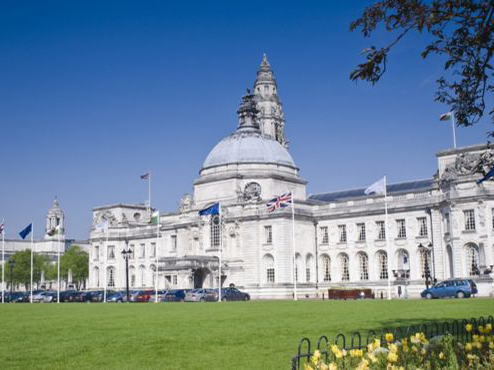COUNCIL tax in Cardiff is set to rise by 5% from April as the authority seeks to meet a £25m budget shortfall.
The rise will mean the average Band D property will face an increased payment of £1.05 per week on their bills in a move which the authority estimates will bring in an extra £6.4m.
But the council has also outlined a spending plan in its 2018/19 budget which involves investing in new schools, better roads, a new recycling centre and a multi-million pound investment in cycling infrastructure.

Cabinet Member for Finance, Modernisation and Performance, Cllr Chris Weaver, said: “We will continue to modernise the way we work to ensure we deliver the best possible service we can for taxpayers, but we also need to be upfront with residents.
“We want Cardiff to be a great place to live and a great place to do business and we are setting out a programme which we believe will deliver for our residents.
“We thought long and hard about raising Council Tax to 5%, but our budget consultation showed us that people wanted more done to improve the fabric of our schools and our roads and that they wanted to see the city take strides forward.
“Cardiff Council has had to make £200m of savings in the past 10 years, with £145m of those savings coming in the past five years alone. Each year it gets harder and harder. We have kept our commitment to keep libraries open, provided £7m extra cash for schools, and set a budget that invests in Cardiff’s future.
“Austerity has not ended. If we are to continue to deliver the services the city’s residents want and continue to make Cardiff an even better place to live then we have to find ways to raise the funds to make that happen in the face of shrinking budgets and increasing demands as our population grows.
The Council’s total current budget stands at £587m, but almost 65% of this (£378m) is currently spent on schools and social services. Both areas are facing rising demand pressures as the city’s population grows.
In addition to raising Council Tax, the authority has also set out a plan to meet the £25m deficit which sees school budget growth capped at £2.2m, £2.3m of reserves being used and savings and income generation providing the remaining £14.3m worth of savings.
Cllr Weaver said: “Each 1% increase in Council Tax raises about £1.3 million, and we have a £25m shortfall this year, so Council Tax alone doesn’t cover the gap. We have to find savings and generate income in a range of different ways to set this budget, but it’s a budget we believe will deliver for the city and its residents.
“We are going to improve the city’s schools, the city’s roads and transport infrastructure, the city’s leisure and housing offerings and we are going to help create jobs so that everyone can share in the benefits we want to bring to our city.”
The council also revealed that it is facing a £91m budget gap over the next three years, so more difficult decisions will need to be made beyond the next financial year.
The Council’s Cabinet will consider the proposals at a meeting on Thursday, February 15, before sending them forward to Full Council for approval the following Thursday.


